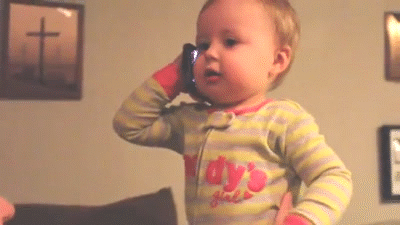Raising your ugly baby…
When we first arrive in the world, we are not pretty. I know that parents and grandparents are blind to it, but when a child first disembarks from the mother’s womb, it’s a shriveled, sauce-covered alien.
But over time, the troll transforms into a beautiful baby. The child is wobbly at first, unable to even lift its own head. But eventually, it can sit up, crawl, and stand before ultimately taking the first few awkward steps. It will be a while before this little person glides across the playground like a gazelle.
Startups follow a similar trajectory…
The idea of a new company is glorious. The day-to-day reality is a hot mess. The product barely works. The team is typically inexperienced, overworked, and under-compensated. There is little to no process, and naive intuition drives a great deal of the workload.
We know how to care for a human child from vulnerable infancy to sustainable adulthood. Provide love, sustenance, education, and shelter — then repeat. The well-suckled child will inevitably escape the home sometime between the ages of 9 and 41 to live their own life and (perhaps) raise a child of their own.
The factors that lead to a healthy startup are less clear, and as a result, WeWork locations all over the world are flooded with panicked founders. The nervous first-time entrepreneurs creep into their startups’ bedrooms at night to make sure they’re still breathing. They mob emergency rooms (aka accelerators) at the slightest hiccup. And, of course, they’re overprotective (writing patents, forcing burdensome contracts, etc.) to shield their children from (the illusion of) danger.
Here are some simple lessons we’ve learned across our dozens of startups to help the first time parent founder sleep a little better and raise a beautiful bouncing startup.
You’re not going to be good at this right away — accept it.
Do you know what happens when a small child learns how to walk? They fall. A lot. It’s hysterical, really. First-time founders are the same. You’re going to fumble sales pitches or recruiting calls, or partner negotiations (or all of the above). It’s going to happen. It’s how we learn. We learn by trying stuff, screwing it up, and trying again. A long list of famous entrepreneurs first failed before eventually earning millions. You’ll only aggravate your frustration if you believe you should be good at this from the start.

Don’t do it alone.
The startup founder carries a heavy burden. They see danger everywhere which can lead to all sorts of unhealthy behaviors. Every decision rests on her/his shoulders. The fates of the customers, investors, and employees hang in the balance. And there is no one you can turn to in your moments of need… Except… that’s not at all true. All you need to do is ask. You have friends; you have fellow entrepreneurs; you have professors, advisors, mentors, investors, lawyers, and others. If you’re suffering in isolation, it’s your fault. There are people everywhere who are knowledgeable and want to help. Don’t believe me? Send me a note directly. I’ll help. See? You’re not alone.

Measure what matters.
Founders tend to be comfortable with ambiguity. How else can someone evangelize something which no one previously has ever used or purchased? But once some signal has been found, it’s time to grow up and measure what really matters. If you’re enterprise software, that means different metrics than if you’re consumer internet. Either way, growing up means report cards, standardized tests, and parent-teacher conferences. Little kids flutter about from one shiny thing to the next. Good parents know when to say no, provide some structure, and hold their little ADD monsters accountable.

(Over) communicate.
When you first get started, getting the team aligned is as easy as talking across the table. But as you grow, your team will no longer fit in one room. And humans are messy. In the absence of information, people fill in the blanks with their own stories. From the grassy knoll to the Bermuda Triangle to the murkiness of the last Presidential election, any time a conclusive explanation is missing, there will be (often unhealthy) speculation. Know that. Prepare for it. Hold all-hands meetings, craft core values, send out overly descriptive emails, share board decks, and above all else, explain “why” when you make important decisions.

Parenting is tough. Keeping a little person alive and thriving requires love and patience. Yet despite your best efforts, let’s face it, more than likely, that child will one day be on a therapist’s couch popping Prozac like it’s candy. Your startup likely is not as beautiful as you believe, but that doesn’t matter. You love it just the same. So follow our advice, and while you might not keep your actual child off antidepressants, at least you’ll have a successful startup to pay the medical bills.
